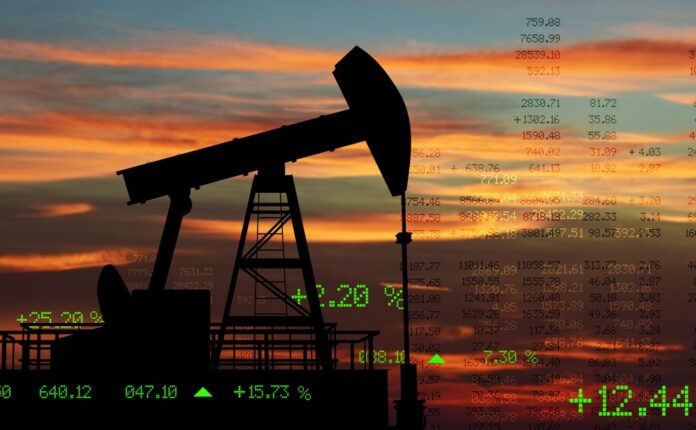RIYADH: Oil prices ticked up on Wednesday on supply concerns, but expectations of another aggressive US interest rate hike capped gains amid investor fears it could lead to a recession and hurt fuel demand.
Brent crude futures rose 11 cents, or 0.1 percent, to $90.73 a barrel by 0415 GMT after falling $1.38 the previous day.
US West Texas Intermediate crude was at $83.99 a barrel, up 5 cents, or 0.1 percent. The October delivery contract expired down $1.28 on Tuesday while the more active November contract lost $1.42.
Colombia’s July oil output rose 2.3 percent year-on-year
Colombia’s crude oil production in July rose 2.3 percent versus the same month a year earlier, the government announced.
Oil output was up to an average of 748,096 barrels per day in the seventh month of this year, compared with production of 731,256 bpd in July 2021, the Ministry of Mines and Energy said in a statement.
Natural gas output in July was 1.12 billion cubic feet per day, the ministry said, down 0.17 percent, compared with the same month in 2021.
State-run Ecopetrol produces the majority of the country’s oil.
US senators want secondary sanctions on Russian oil
Democratic and Republican senators on Tuesday proposed that US President Joe Biden’s administration use secondary sanctions on international banks to strengthen a price cap the Group of Seven countries plan to impose on Russian oil over Moscow’s invasion of Ukraine.
Democratic Senator Chris Van Hollen and Republican Senator Pat Toomey announced a framework for legislation to impose the secondary sanctions, which would target financial institutions involved in trade finance, insurance, reinsurance and brokerage of Russian oil and petroleum products sold at prices exceeding the cap.
Both senators are members of the Senate Banking Committee, which oversees sanctions policy.
They said the ability to target banks would make it harder for Russia to evade the price cap through deals with countries not formally participating in the G7 scheme.
“If you want to set a worldwide price cap on Russian oil, you need to ensure that it’s uniformly applied. And to do that, we believe you need the backup of the secondary sanctions,” van Hollen said on a call with reporters after a banking committee hearing on Russia sanctions.
“I think the president needs new authority from Congress to enforce the price caps on anyone who buys oil from Russia at a price above the cap that’s been set or in significantly increased volumes,” Toomey said on the call.
The Biden administration has been reluctant to impose secondary sanctions, concerned they could complicate relations with importers of Russian oil like China and India.
(With input from Reuters)

